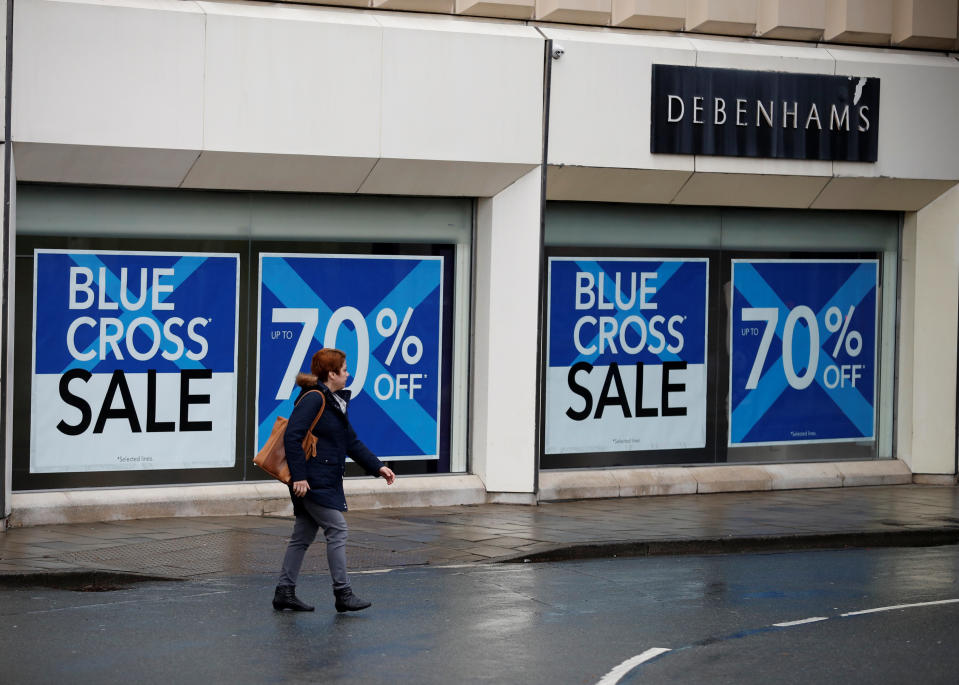Christmas shopping: who were the winners and losers?

Christmas is crunch time for Britain’s retailers. Stores go all out with promotions, gimmicks, adverts and sales to tempt UK consumers to spend their hard-earned cash.
Sales seem to start earlier and earlier each year – and the discounting this festive season was as competitive as ever.
As Brexit weighs heavy on consumer confidence, rising inflation – currently at 3.1% – has also eaten into spending power.
Added to stagnating wages, the UK retail sector, from food to clothing, electronics to toys, faced a hard slog to deliver good results.
So who did raise a celebratory glass to the new year? And which retailers were left with unwanted presents still lying under their trees?

The winners:
Tesco – it cemented its position as the UK’s favourite supermarket with sales up 2.3% in the 19 weeks to 6 January. The supermarket said it enjoyed “record sales and volumes” in the four weeks leading up to Christmas Day.
Boohoo – the urban fashion brand reported record revenue for the four months that include the Christmas period, and Black Friday. Revenue doubled to £228.2m. Not bad for a company founded just 12 years ago. Its brands include Nasty Gal and PrettyLittleThing.

John Lewis – as well known for its Christmas TV ads as anything it sells, sales at the John Lewis department stores were just over £1bn, up 3.1% on a like-for-like basis. It also enjoyed its most successful Black Friday, contributing to the biggest ever week of sales, up 7.2% year-on-year. A word of caution, though – boss Sir Charlie Mayfield says the weak pound and keeping pace with rivals’ discounts could hit profits later.
MORE: Almost 44,000 UK retailers ‘in real financial distress’, experts warn
Waitrose – part of the John Lewis family, it prospered while Marks & Spencer struggled. Total Waitrose sales – excluding fuel – came in a £928m, a rise of 1.5% on last year.
Morrisons – UK’s fourth largest supermarket, shifted 2.8% more in the 10 weeks to 7 January than it did for the same period a year earlier, not including new store openings. Christmas trading was particularly strong with sales for the last six weeks up 3.7% compared to a year ago.

Next – the clothing retailer revealed a better than expected Christmas, with strong online sales more than offsetting poor trading at its high street stores. Overall sales rose 1.5% in the nine weeks to 24 December.
Sainsbury’s – the UK’s second-largest supermarket was boosted by its merger with Argos, upgrading profit expectations by about 5%. Sales at established stores rose by 1.1% in the 15 weeks to 6 January.
Fat Face – the trendy casual clothing retailer revealed a 12% increase in total sales in the five weeks to January. Its decision not to go down the pre-Christmas discounting route was crucial to its success, it said.

The losers:
Marks & Spencer – its woes continue with clothing and homeware sales down 2.8%, while food, so often seen as its most successful sector, was down 0.4%. Neil Wilson, senior market analysts, at ETX Capital, said: “This isn’t just any retail decline, this is an M&S one. Waitrose – probably its closest apples-to-apples rival in food – saw like-for like sales up by 1.5%.”
House of Fraser – just days after seeking a rent reduction from its landlords, the retailer said sales in stores fell 2.9% in the six weeks to 23 December. Online sales fell 7.5% over the same period. However, it said its strategy of discounting fewer products paid off, with profit margins across the business up by approximately 0.5% over the festive trading period.

Card Factory – while sales for the 11 months to December 31 grew 5.9% year on year, sales of its core greetings cards were practically flat. Shares fell by about 20% in morning trading after it predicted profits would be about £95m, below the £98.5m in 2017.
MORE: Leading economists predict gloomy 2018 for business, workers and consumers
Debenhams – brought forward its trading statement to issue a profits warning after seeing sales slump 2.6% in the 17 weeks to 30 December. Heavy discounting on festive gifts failed to draw in customers.
Mothercare – a dire Christmas for the mother and baby chain saw in-stores sales plummet 7.2% in the 12 weeks to December 30, while online sales tumbled 6.9%. A decision not to cut prices over the festive season did not pay off.

 Yahoo Finance
Yahoo Finance 
